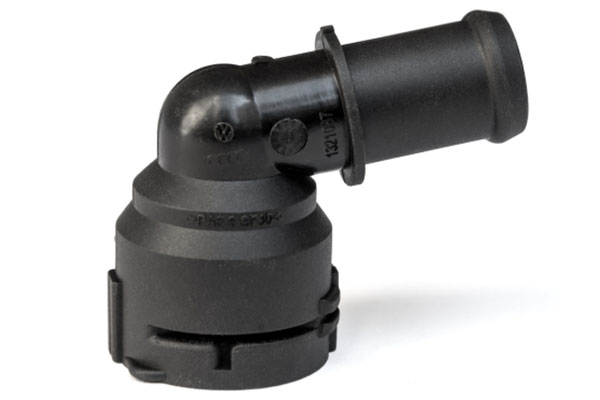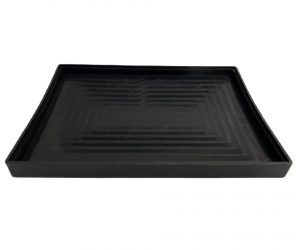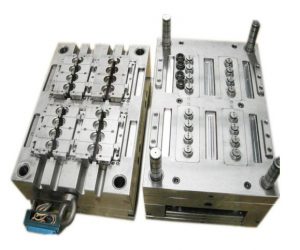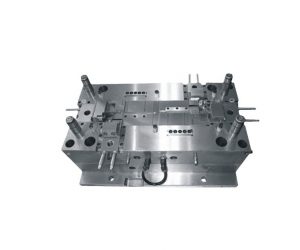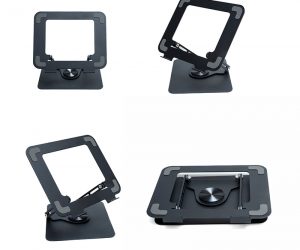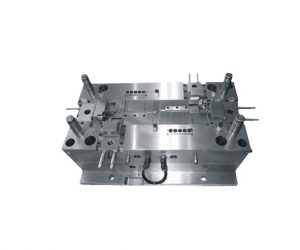Introduction
Definition and Significance of Global Precision Machining
Global precision machining refers to the highly accurate process of fabricating components and parts with extremely tight tolerances, often within the micrometer or even nanometer range. It involves the use of advanced machinery, sophisticated tools, and cutting - edge techniques to shape raw materials into finished products that meet the most exacting specifications.
In the realm of manufacturing, precision machining is of paramount importance. It serves as the backbone for numerous industries, enabling the production of high - quality, reliable components. For Yigu Technology instance, in the aerospace industry, where the safety and performance of aircraft are at stake, precision - machined parts are crucial. Turbine blades in jet engines, which operate under extreme temperatures and stress, must be machined with utmost precision to ensure efficient combustion and optimal engine performance. Any deviation in their shape or dimensions could lead to reduced fuel efficiency, increased emissions, or even catastrophic engine failure.
As we can see, global precision machining is not just a manufacturing process; it is the driving force behind the development and advancement of multiple industries, directly impacting the quality of life, technological progress, and economic growth worldwide. This article will explore in depth how global precision machining is shaping the future of manufacturing, from technological advancements to market trends and industry applications.
Technological Advancements in Precision Machining
Automation and Robotics
Their Role in Machining Processes
Automation and robotics have become game - changers in the realm of precision machining. In traditional machining processes, human operators are required to perform a multitude of tasks, from setting up the machinery to monitoring the machining operations. However, this approach is often plagued by issues such as operator fatigue, inconsistent performance, and a higher likelihood of errors.
Automated systems and robots, on the other hand, can operate continuously with unwavering precision. They are programmed to execute tasks with extreme accuracy, reducing the margin of error to a minimum. For Yigu Technology example, in a high - volume production of small - sized precision parts, an automated machining cell can produce thousands of components with consistent dimensions day after day. These systems can also adapt to different machining requirements quickly by simply changing the control program, eliminating the need for extensive manual re - configuration.
Examples of Their Application
Many leading manufacturing companies have already reaped the benefits of automation and robotics in precision machining. For instance, Tesla, the renowned electric vehicle manufacturer, uses a large number of robots in its automotive component manufacturing plants. These robots are involved in tasks such as precision milling of engine parts and the assembly of complex transmission components. By doing so, Tesla has been able to improve the quality of its components, reduce production time, and enhance overall vehicle performance.
Advanced Machining Technologies
CNC Machining
Computer Numerical Control (CNC) machining has revolutionized the way complex shapes and designs are produced in precision machining. In CNC machining, a computer program is used to control the movement of machine tools such as mills, lathes, and routers. This allows for the creation of highly intricate parts with a level of precision and repeatability that is difficult to achieve with manual machining.
For example, in the aerospace industry, the production of turbine blades requires extremely high precision. These blades have complex airfoil shapes that must be machined with tight tolerances to ensure optimal engine performance. CNC machining enables manufacturers to program the exact tool paths and cutting parameters required to produce these blades with consistent accuracy. The repeatability of CNC machining means that every blade produced will have the same high - quality finish and dimensional accuracy, regardless of the number of parts in the production run.
CNC machines also offer the advantage of multi - axis machining. With the ability to control up to five or more axes simultaneously, these machines can produce parts with complex geometries in a single setup. This reduces the need for multiple operations and setups, which in turn minimizes the accumulation of errors and saves production time. For Yigu Technology instance, in the manufacturing of complex mold components for the plastics industry, multi - axis CNC machining can create intricate cavities and cores with smooth surfaces and sharp edges, all in one operation.
Additive Manufacturing (3D Printing)
Additive manufacturing, commonly known as 3D printing, is another advanced technology that is making waves in precision machining. Unlike traditional subtractive manufacturing methods, which remove material from a workpiece to create the desired shape, 3D printing builds parts layer by layer from a digital model. This approach offers several unique advantages, especially when it comes to producing complex geometric shapes.
One of the key benefits of 3D printing is its design freedom. It allows engineers to create parts with internal structures and geometries that would be impossible or extremely difficult to produce using traditional machining methods. For example, in the medical device industry, 3D printing is used to create patient - specific implants with complex lattice structures. These lattice structures can mimic the natural bone structure, promoting better integration with the patient's body and faster healing.
In the aerospace industry, 3D printing is being used to produce lightweight components with optimized geometries. By using advanced algorithms, engineers can design parts that have the minimum amount of material required to meet the structural requirements, reducing the weight of the aircraft and improving fuel efficiency. For instance, GE Aviation uses 3D printing to manufacture fuel nozzles for its jet engines. These nozzles have complex internal channels that are designed to improve fuel atomization, resulting in more efficient combustion and reduced emissions.
3D printing also enables rapid prototyping. In product development, companies can quickly create physical prototypes of their designs using 3D printers. This allows for faster iteration and testing, reducing the time and cost associated with traditional prototyping methods. For start - up companies or those in the research and development phase, 3D printing can be a valuable tool for bringing new products to market more quickly.
The following Yigu Technology table summarizes the differences between CNC machining and additive manufacturing in terms of their capabilities for precision machining:
| Feature | CNC Machining | Additive Manufacturing |
| Material Removal/Addition | Subtractive (removes material from a workpiece) | Additive (builds parts layer by layer) |
| Complexity of Geometries | Can produce complex shapes, but more limited in internal geometries | High design freedom, can create complex internal and external geometries |
| Precision and Tolerances | High precision, can achieve tight tolerances | Improving precision, can achieve relatively tight tolerances for some applications |
| Production Volume Suitability | Well - suited for high - volume production | More suitable for low - volume production, rapid prototyping, and customized parts |
| Surface Finish | Generally produces a smooth surface finish | Surface finish may require post - processing, but can be improved with advanced techniques |
As we can see, both CNC machining and additive manufacturing have their own unique strengths and are complementary to each other in the field of precision machining. The choice between the two technologies depends on the specific requirements of the part, such as its complexity, production volume, and the desired level of precision.
Innovations in Precision Machining
Ultra - Precision Machining
Concept and Applications
Ultra - precision machining is an advanced manufacturing technology that aims to achieve extremely high levels of precision and surface finish. It involves the use of specialized machine tools, cutting - edge techniques, and high - quality materials to produce components with tolerances in the micrometer or even nanometer range.
The Significance of Ultra - Precision in High - Tech Industries
In high - tech industries, even the slightest deviation in the dimensions or surface quality of a component can have far - reaching consequences. In the aerospace industry, components such as turbine blades and fuel nozzles are subjected to extreme conditions, including high temperatures, pressures, and mechanical stresses. Any imperfection in these components, no matter how small, can lead to reduced performance, increased fuel consumption, and even catastrophic failures.
Smart Factory Solutions
Integration of Advanced Technologies
Smart factory solutions represent a paradigm shift in manufacturing, integrating a range of advanced technologies to create intelligent and highly efficient production environments. At the core of smart factories is the Internet of Things (IoT), which enables the connection and communication of various devices and systems within the factory. Sensors are installed on machines, equipment, and products, collecting real - time data on factors such as temperature, vibration, pressure, and production 进度. This data is then transmitted over a network to a central control system, where it can be analyzed and used to make informed decisions.
Benefits for Manufacturers
Smart factory solutions offer numerous benefits to manufacturers. Firstly, they enable the optimization of operations. Through real - time monitoring and analysis of production data, manufacturers can identify inefficiencies and take immediate action to correct them. For example, if a machine is operating at a sub - optimal speed, the smart factory system can automatically adjust the speed to maximize productivity. This can lead to significant improvements in overall production efficiency, with some studies showing that smart factories can increase productivity by up to 30%.
In conclusion, innovations in precision machining, such as ultra - precision machining and smart factory solutions, are playing a pivotal role in shaping the future of manufacturing. These advancements are enabling manufacturers to produce higher - quality products, improve production efficiency, and reduce costs, ultimately driving the industry forward in an increasingly competitive global market.
FAQ
- What is the difference between precision machining and ultra - precision machining?
Precision machining generally refers to the process of achieving tight tolerances within the micrometer range, usually with a focus on high - quality component production for various industries. Ultra - precision machining, on the other hand, aims for even higher precision, often in the nanometer range. It is used in industries where extremely high accuracy and surface finish are critical, such as microelectronics and photonics.
- How does smart factory technology improve the quality of precision - machined products?
Smart factory technology improves product quality in several ways. Sensors and real - time monitoring allow for continuous quality control during the production process. AI and machine learning algorithms can analyze data to detect and correct any deviations from the desired specifications. Predictive maintenance ensures that machines are in optimal condition, reducing the likelihood of errors caused by equipment malfunctions.
- Is additive manufacturing suitable for high - volume precision machining production?
Additive manufacturing, or 3D printing, is more commonly used for low - volume production, rapid prototyping, and customized parts. While it can achieve relatively tight tolerances for some applications, it generally has a lower production speed compared to traditional machining methods like CNC machining. For high - volume precision machining production, CNC machining is often a more suitable choice due to its higher productivity and consistent precision in mass production.
Conclusion
In Yigu Technology conclusion, global precision machining is playing a transformative role in shaping the future of manufacturing. The market for precision machining has been on a remarkable growth trajectory. Valued at USD 150 billion in 2020, it is projected to reach USD 200 billion by 2025, with a Compound Annual Growth Rate (CAGR) of 6%. This growth is not just a simple expansion in numbers; it represents a fundamental shift in the manufacturing landscape.
Technological advancements are at the heart of this transformation. Automation and robotics have made machining processes more efficient, accurate, and productive. They have removed the limitations imposed by human error and fatigue, enabling the production of high - quality components with greater consistency. Advanced machining technologies such as CNC machining and additive manufacturing have opened up new possibilities in terms of design complexity and production flexibility. CNC machining allows for the creation of intricate parts with high precision and repeatability, while additive manufacturing offers design freedom and the ability to produce complex geometries that were previously unachievable.
Innovations like ultra - precision machining and smart factory solutions are taking precision machining to the next level. Ultra - precision machining, with its ability to achieve nanometer - level tolerances, is enabling the development of high - tech products in microelectronics, photonics, and other advanced industries. Smart factory solutions, through the integration of IoT, AI, and big data analytics, are creating intelligent manufacturing environments that optimize operations, reduce costs, and improve productivity.
